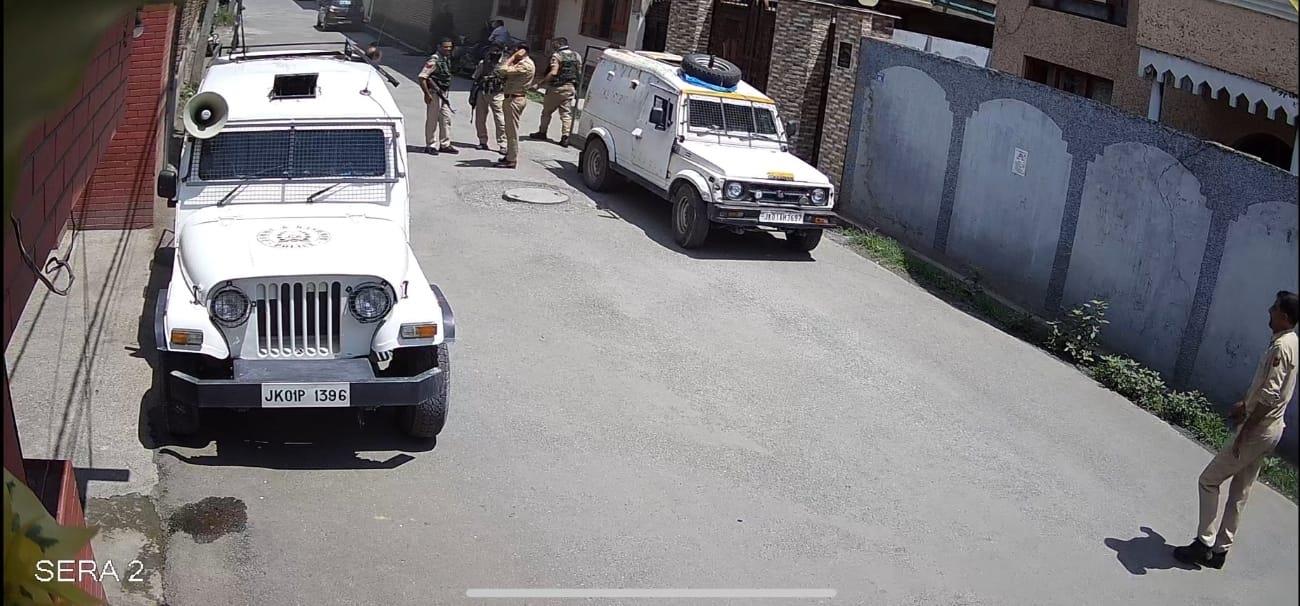Citing fears of unrest, authorities bar Kashmir’s top cleric from leading prayers; political and civil society voices condemn the move as curbing historical and religious expression.
By: Javid Amin | Srinagar | 11 July 2025
In a controversial move that has stirred strong public and political reactions, Mirwaiz Umar Farooq, chairman of the Hurriyat Conference and Kashmir’s chief cleric, was placed under house arrest on Friday, July 11, just two days before Martyrs’ Day—an occasion deeply rooted in Kashmir’s historical memory.
Authorities barred the Mirwaiz from delivering the Friday sermon at Jamia Masjid, Srinagar’s iconic 14th-century mosque, which typically sees large gatherings on significant dates.
The 1931 Martyrs and Collective Memory
July 13 marks the death of 22 Kashmiris who were gunned down by Dogra forces outside Srinagar Central Jail during a protest against autocratic rule. For decades, the day was officially observed with wreath-laying ceremonies at the Martyrs’ Graveyard in Naqshband Sahib, and it remained a state holiday—until it was removed from the official calendar following the abrogation of Article 370 in 2019.
Mirwaiz Speaks Out
From his residence, Mirwaiz issued a strong statement via social media, denouncing the restrictions and emphasizing that the sacrifices of the 1931 martyrs are etched in Kashmir’s collective consciousness.
“Attempts to suppress remembrance through restrictions will not succeed,” he posted. “We appeal to authorities to allow peaceful homage at the Martyrs’ Graveyard on July 13.”
Mirwaiz’s message was not only religious but also historical and political. His words echoed broader concerns that the erasure of commemorative spaces and voices is tantamount to rewriting Kashmir’s identity.
Political Backlash & Civil Society Criticism
The move was widely criticized by opposition leaders, academics, and civil society activists:
- National Conference (NC) leaders termed the action “unwarranted and provocative”.
- PDP President Mehbooba Mufti accused the government of “criminalizing memory and identity.”
- Apni Party called the restrictions an infringement on religious freedom and urged authorities to avoid further alienation.
Civil rights groups described the house arrest as part of a larger pattern of state suppression around sensitive historical anniversaries.
Context: Precedents of Curbs on Sensitive Days
This isn’t the first time the government has imposed restrictions on religious or political leaders ahead of historically symbolic dates. Over the past few years, several anniversaries—ranging from Martyrs’ Day to Sheikh Abdullah’s birth anniversary—have seen increased security deployments, communication blackouts, or movement restrictions on key figures.
Analysts argue that such actions only intensify public distrust and risk further polarizing sentiment in an already fragile political environment.
Call for Restraint and Dialogue
Multiple voices, including religious organizations, bar associations, and student unions, have urged the administration to lift the house arrest and allow peaceful commemorations. Many stress that restricting freedom of expression—especially when tied to historical and cultural memory—undermines democratic values.
“You cannot build peace while erasing the past. Historical reconciliation begins with acknowledgment, not denial,” said Dr. Muneeb Ahmad, a political sociologist based in Srinagar.
Summary
- Mirwaiz Umar Farooq placed under house arrest on July 11, two days ahead of Martyrs’ Day
- Barred from leading Friday prayers at Jamia Masjid, triggering criticism
- Authorities accused of suppressing remembrance of 1931 martyrs
- Political parties and civil society call for lifting restrictions and respecting cultural memory
Editorial Note
The current tensions underscore the delicate balance between security concerns and cultural freedoms in Kashmir. As the Union Territory navigates post-370 governance, how it handles public memory and dissent will shape the region’s future political and social trajectory.



